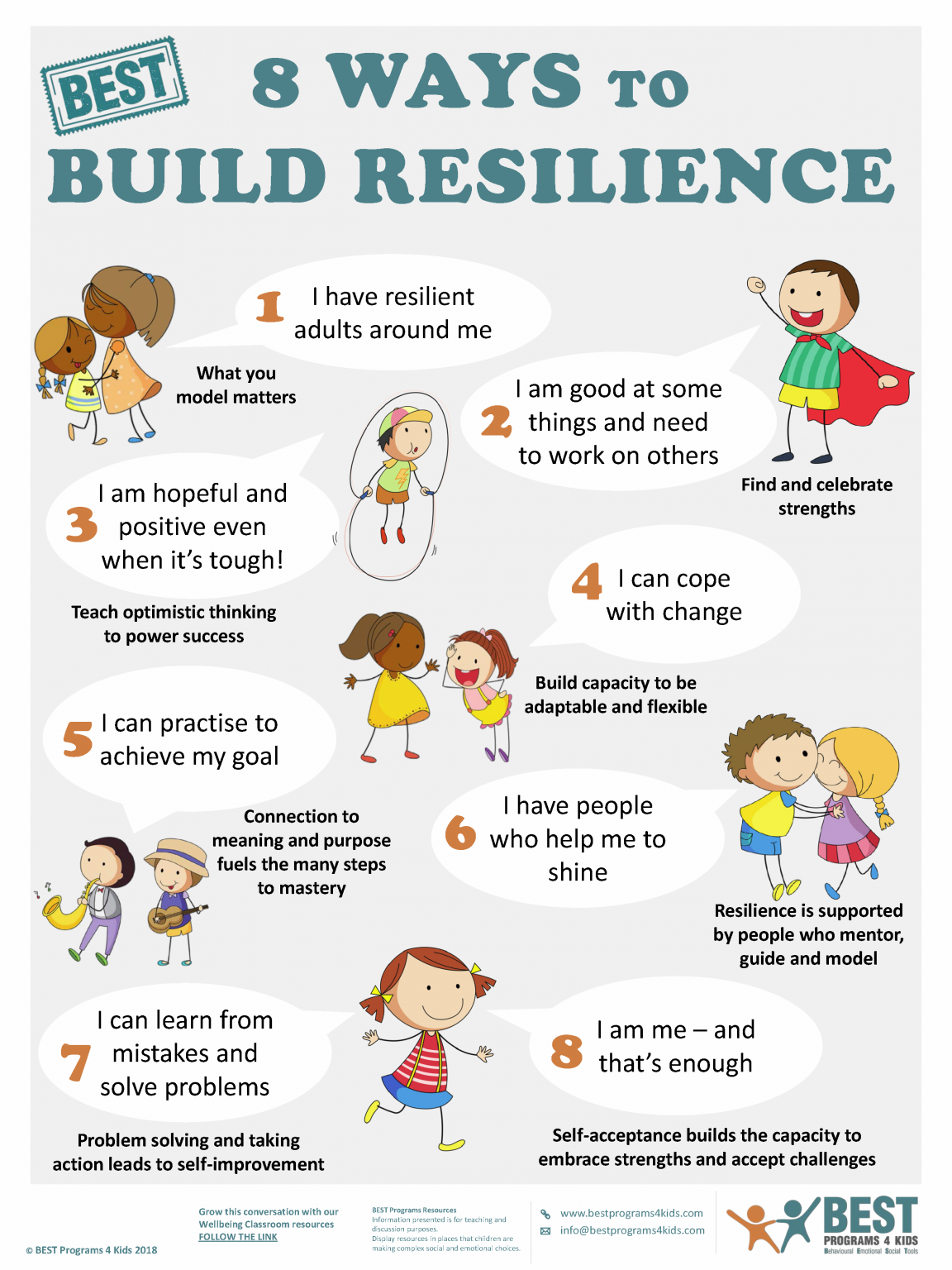Resilience & Mental Health: Building Strength, Not Bitterness

Table of Contents
Understanding Resilience and its Importance for Mental Wellbeing
Defining Resilience: The Foundation of Strength
Resilience is the ability to bounce back from difficult experiences, adapt to change, and maintain a positive outlook. It's not about avoiding hardship, but about navigating it effectively and emerging stronger on the other side.
- It's not about avoiding hardship, but about navigating it effectively. Resilience is about developing the skills and coping mechanisms to manage challenges, rather than preventing them altogether.
- Resilience is a skill that can be learned and strengthened over time. It's not an innate trait; it's a capability that can be developed through conscious effort and practice.
- It involves emotional regulation, problem-solving, and optimism. These three elements work together to help individuals cope with stress, overcome obstacles, and maintain a positive perspective.
The Link Between Resilience and Mental Health: A Protective Shield
Strong resilience acts as a buffer against mental health challenges like anxiety and depression. Individuals with high resilience are better equipped to manage stress and navigate difficult situations.
- Resilient individuals are better equipped to cope with stress, manage setbacks, and maintain overall well-being. They possess the tools to navigate adversity without succumbing to its negative effects.
- Building resilience can significantly reduce the risk of developing mental health disorders. By strengthening your ability to cope, you lessen the likelihood of developing conditions such as anxiety or depression.
- It fosters a sense of self-efficacy and control. Believing in your ability to overcome challenges is a cornerstone of resilience and contributes to improved mental health.
Practical Strategies for Building Resilience: Tools for Thriving
Building resilience is an active process. It requires conscious effort and the development of specific skills and coping mechanisms.
Cultivating a Positive Mindset: The Power of Positive Thinking
A positive mindset is crucial for building resilience. This involves actively challenging negative thoughts and replacing them with more constructive ones.
- Practice gratitude: Regularly reflecting on what you're grateful for shifts your focus to the positive aspects of your life.
- Focus on your strengths: Identifying and leveraging your strengths boosts self-esteem and confidence, making you better equipped to handle challenges.
- Challenge negative self-talk: Become aware of negative thoughts and actively challenge their validity. Replace them with more balanced and realistic perspectives.
- Use affirmations: Repeating positive statements can help to reprogram your subconscious mind and foster a more positive outlook.
- Practice mindfulness: Mindfulness meditation helps you stay present and grounded, reducing stress and improving emotional regulation.
Developing Effective Coping Mechanisms: Managing Stress and Difficult Emotions
Effective coping mechanisms are essential for navigating challenging situations and reducing stress.
- Exercise regularly: Physical activity releases endorphins, which have mood-boosting effects and help reduce stress.
- Prioritize sleep: Sufficient sleep is crucial for both physical and mental well-being. Aim for 7-9 hours of quality sleep each night.
- Maintain a healthy diet: Nourishing your body with healthy foods provides the energy and nutrients you need to cope with stress.
- Engage in relaxation techniques: Meditation, deep breathing exercises, and yoga can help calm your mind and reduce stress levels.
- Connect with supportive social networks: Spending time with loved ones provides emotional support and reduces feelings of isolation.
- Pursue hobbies and interests: Engaging in activities you enjoy helps to reduce stress and promotes a sense of well-being.
Building Strong Social Connections: The Power of Support
Strong social connections are a vital component of resilience. Having a supportive network can make all the difference during challenging times.
- Nurture relationships with family and friends: Maintain strong relationships with people who provide emotional support and understanding.
- Join support groups: Connecting with others who share similar experiences can provide a sense of community and reduce feelings of isolation.
- Seek professional help when needed: Don't hesitate to reach out to a mental health professional if you're struggling to cope.
- Build a strong support system: Actively cultivate relationships with people who provide emotional support and encouragement.
Seeking Professional Help for Mental Health Challenges: When to Reach Out
Recognizing when you need professional help is a sign of strength, not weakness. If you're struggling to cope, seeking support is crucial.
Recognizing When to Seek Support: Identifying Warning Signs
Several signs may indicate that you could benefit from professional mental health support.
- Persistent feelings of sadness, hopelessness, or anxiety.
- Significant changes in sleep or appetite.
- Difficulty concentrating or making decisions.
- Withdrawal from social activities and loved ones.
- Thoughts of self-harm or suicide.
Types of Mental Health Professionals: Finding the Right Support
Several types of mental health professionals can provide support and treatment.
- Therapists: Offer talk therapy to help you process emotions, develop coping skills, and address underlying issues.
- Counselors: Provide guidance and support for a range of mental health concerns.
- Psychiatrists: Are medical doctors who can diagnose and treat mental illnesses, often prescribing medication.
- Other mental health specialists: Psychologists, social workers, and other professionals also offer valuable support.
Conclusion: Embracing the Journey to Resilience
Building resilience and prioritizing mental health is a journey, not a destination. By understanding the importance of resilience, implementing practical strategies, and seeking support when needed, you can build strength and overcome adversity, fostering a life filled with purpose and joy. Don't let challenges define you; use them to build your resilience and cultivate a stronger, more resilient you. Start building your resilience today! Learn more about improving your mental health and developing coping mechanisms for building resilience.

Featured Posts
-
 Biarritz Vs Asbh Pro D2 L Importance Du Facteur Mental
May 20, 2025
Biarritz Vs Asbh Pro D2 L Importance Du Facteur Mental
May 20, 2025 -
 Analiza Toncija Tadica Putinovi Pregovori I Njihov Ishod
May 20, 2025
Analiza Toncija Tadica Putinovi Pregovori I Njihov Ishod
May 20, 2025 -
 Cin Grand Prix Diskalifikasyonlari Hamilton Leclerc Ve Ferrari Nin Gelecegi
May 20, 2025
Cin Grand Prix Diskalifikasyonlari Hamilton Leclerc Ve Ferrari Nin Gelecegi
May 20, 2025 -
 Breezy And Mild Weather Your Guide To Comfort
May 20, 2025
Breezy And Mild Weather Your Guide To Comfort
May 20, 2025 -
 Comprendre Le Systeme De Numerotation Des Batiments Dans Le District D Abidjan
May 20, 2025
Comprendre Le Systeme De Numerotation Des Batiments Dans Le District D Abidjan
May 20, 2025
